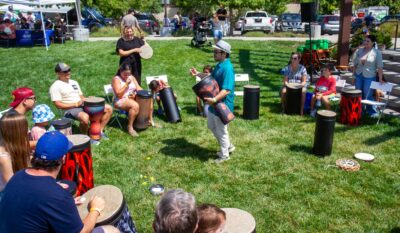In a country that prides itself on following “the rule of law,” which I think the U.S. still does, one must not forget that the enforcement of laws is based on “opinions,” that is, their interpretation and application by the courts, and the U.S. Constitution is not exempt from that basic premise. But what are opinions based on? Well, they could be based on a lot of things, including, but not limited to, the general political climate of the times (or even the particular circumstances of the moment).
Take the 14th Amendment to the U.S. Constitution and the matter of “birthright citizenship.” I don’t think you can find a single constitutional scholar who would argue against the fact that Section 1 of the 14th Amendment was written to grant U.S. citizenship to former Black slaves after the Civil War. Oddly enough, Sen. Jacob Howard, one of its co-authors, stated that “this will not, of course, include persons born in the United States whose parents are foreigners, aliens, or who belong to the families of ambassadors or foreign ministers.” It seems even they were wary of the potential for abuse (which we are seeing today). Why they didn’t simply include that (significant) restriction in the amendment is beyond me.
One thing is a fact, though, and that is that the last living child of a freed slave, one Daniel Smith, died in October 2022 at the age of 90. It would seem, then that Section 1 of the 14th Amendment is no longer needed … right?
The 14th Amendment to the U.S. Constitution was part of the Reconstruction Amendments following the end of the Civil War. In the Dred Scott case of 1857 the U.S. Supreme Court (idiotically) upheld slavery in U.S. territories and denied U.S. citizenship to Black slaves who were born on U.S. soil. Section 1 of the 14th Amendment sought to correct that … but that alone. At least one of your parents still had to be a citizen for you to be a citizen by birth on U.S. soil otherwise. So, in a sense, Donald Trump’s executive order is taking us back in time … a “better” time? That’s a matter of opinion.
The issue of U.S. citizenship has evolved significantly since the founding of our country. Back then only “white” men, women, and children could be citizens, and only white “landowning” men could vote. The basis for that was the consideration of personal responsibility and loyalty to the U.S., that is to say, it was thought that only those who actually owned a piece of the country would be willing to do what it takes to protect and preserve it (i.e. to fight and die for it). Over the centuries U.S. citizenship has gradually been extended to ever more persons (regardless of their interest in protecting and preserving this country) and there’s the rub: loyalty. To put it differently, would you pick someone to be on your team if you believed they would abandon you (or even switch to the other side) when the going got rough?
Oh, and by the way, as far as I know the only countries on this planet that grant citizenship by virtue of birth on that country’s soil are the U.S., Canada, Mexico, Central and most of South America – nowhere else – but many people seem to be fleeing most of those other countries.
Arthur Saginian
Santa Clarita












